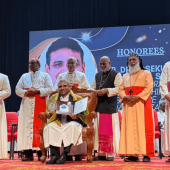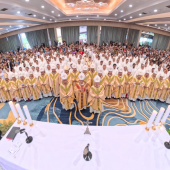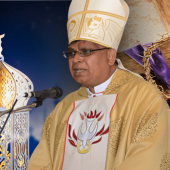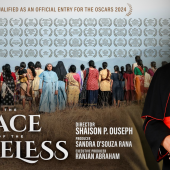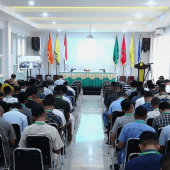Indonesia: Jakarta Catechists Urged to Take Digital Evangelization Seriously
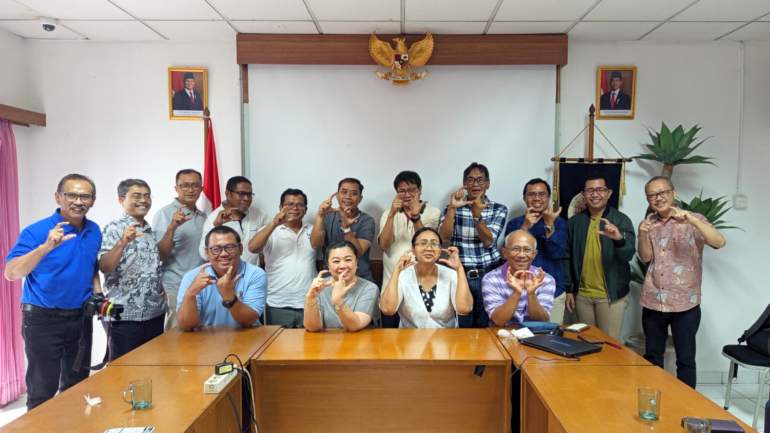
The Archdiocese of Jakarta’s Catechetical Commission (Komkat KAJ) dedicated its monthly CathClass Study Day on September 27 to one of the most pressing concerns facing the Church today: digital catechesis.
The session, attended by senior catechists, clergy, and lay leaders, featured a presentation by Andreas Hendra Santosa, a former Jesuit seminarian and IT professional known as one of the founders of the Catholic news portal Sesawi.Net. With a visually dynamic talk, Andreas challenged participants to recognize that digital catechesis is both an extraordinary opportunity and a serious challenge.
“If handled seriously, digital catechesis can reach an unlimited audience, because people are always roaming in the digital world,” Andreas stressed. He warned, however, that if the Church fails to engage in this space, Catholics, especially Gen Z, will be left to form their understanding of the faith through unreliable online sources.
Social media platforms such as TikTok, YouTube, and Instagram, he explained, have already reshaped behavior, habits, and the way people consume information. “That style no longer has an effect,” he said of conventional catechetical methods. “Digital culture is the new culture.”
Fr. Carolus “Uut” Putranto Pr, chairman of Komkat KAJ, welcomed the critique and said the commission must act quickly. “Even in our meeting of catechetical leaders across Java, this issue had not been discussed,” he admitted, adding that Andreas’ proposals should be followed up by the CathClass Teaching Team.
Frans Widiyanto, chairman of CathClass KAJ, also proposed that the October study session continue exploring how catechists can optimize digital tools, including Artificial Intelligence (AI), for faith education. At the same time, Andreas reminded participants that AI and online platforms can mislead, and guidelines are needed for responsible use.
The urgency of this shift is underscored by Indonesia’s digital reality: 139 million active social media users spend an average of over three hours online daily. “People today are more anxious about losing their phone than their wallet,” Andreas quipped. “If we fail to meet them there, we lose a huge opportunity to share the Good News.”
Veteran catechist Prasetyo Hartono confirmed the trend, noting that even the preferred “portrait format” of Gen Z reflects how catechesis must adapt to digital habits.
Komkat KAJ’s CathClass Study Day, held monthly across Jakarta’s parishes, aims to strengthen catechists with new insights and updated teaching methods. Saturday’s session closed with a clear consensus: digital catechesis must be embraced, not ignored, if the Church hopes to reach today’s faithful.
Radio Veritas Asia (RVA), a media platform of the Catholic Church, aims to share Christ. RVA started in 1969 as a continental Catholic radio station to serve Asian countries in their respective local language, thus earning the tag “the Voice of Asian Christianity.” Responding to the emerging context, RVA embraced media platforms to connect with the global Asian audience via its 21 language websites and various social media platforms.









